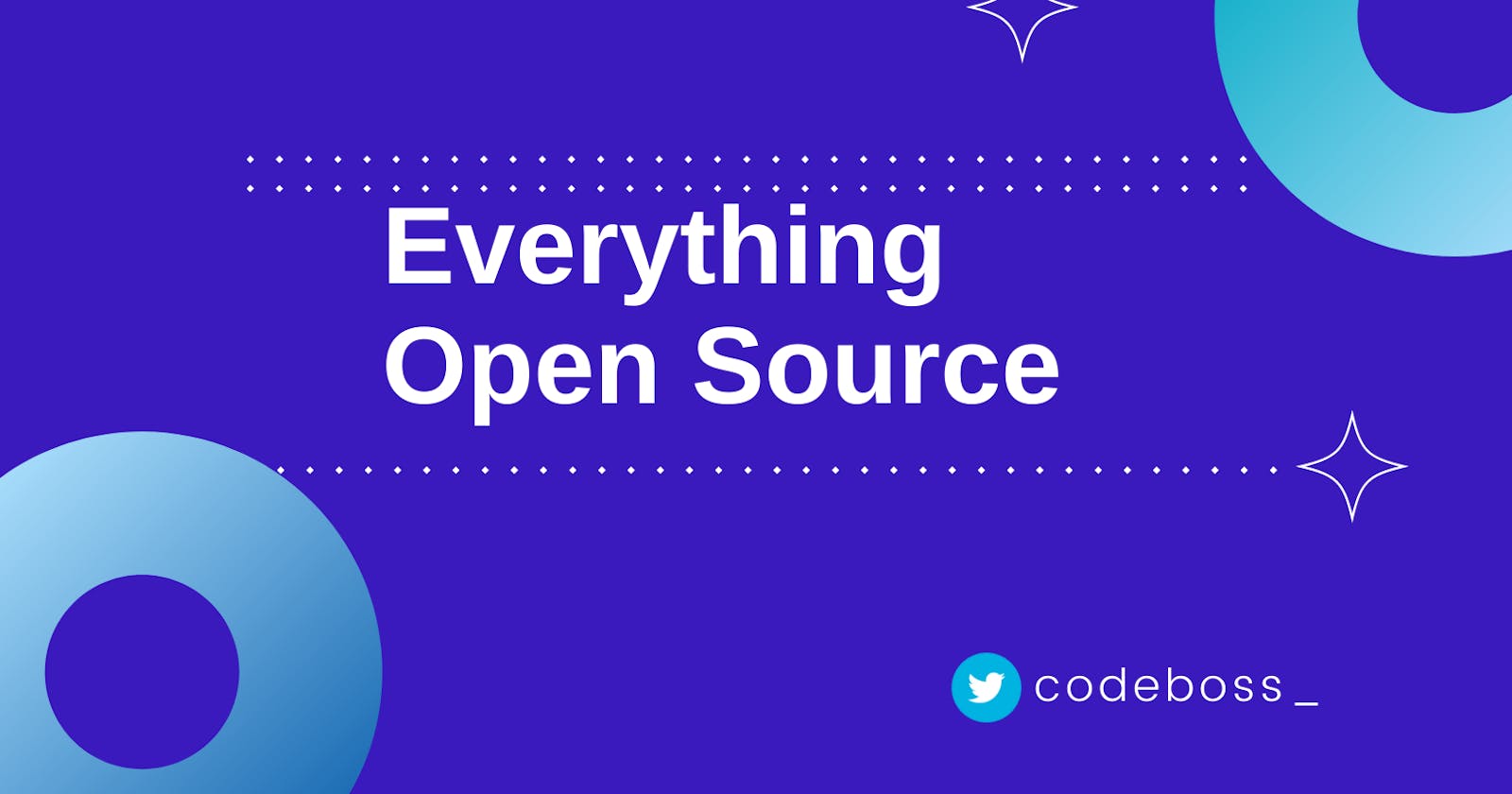The tech industry today is dominated by the term open source, chances are that in one way or the other you've used open source software or have simply heard of the term open source. Open source is the driving force of modern-day software. In this article, I will explain what is open source, benefits of contributing to open source, who can contribute to open source, non-code contributions to open source, open source programs to participate, open source communities.
Overview of Open-Source
Open source software is a non-proprietary software whereby the copyright owner grants access to anyone who wishes to copy, modify or enhance the source code or even use the code for a totally new project. The source code is released under a license that makes it free and accessible, so users can manipulate the source code and use it for different purposes or even contribute to the growth of the software itself.
Benefits of Contributing to Open Source
Contributing to open source is more like an unpaid internship because you don't get direct cash rewards but the following benefits are worth contributing to open source.
- Employment opportunities: Recruiters can easily reach out to you through active contribution to open source even without applying directly for the job.
- Build your network: Contributing to open source provides you the opportunity to grow your network by connecting or collaborating with other professionals in the community.
- Improve your career: Constantly contributing to open source generally improves your skill progression.
- Satisfaction: The good feeling you get from just knowing the fact that you contributed to the growth of your favorite tool or software and people actually use your code.
- Recognition: You gain recognition from the community when you get involved with open source.
Who can Contribute to Open Source?
Developers, designers, and writers can all contribute to open source. And also, it doesn't matter your level of proficiency in any of the fields, both newbies and professionals can all contribute to open source. As a newbie, you can start contributing to open source with as little as a spelling correction on the documentation of a project.
Non-Code Contributions to Open Source
The following are some non-code contributions that you can make to open source;
- Code Review: Reviewing code is another form of contribution to open source.
- Translation: Documentation written in a different language actually increases software or code usability.
- Writing Articles: Writing articles about how to use open source software or tools is one way to contribute to open source.
- Open Source Advocacy: Spreading the word about open source by hosting meetups, hackathons, workshops, and also mentoring newbies.
- Documentation: You can make a contribution to open source simply by improving the documentation of a project.
- Report Bugs: Reporting bugs you encounter when using the software is another way to contribute.
Open Source Programs to Participate
- Hacktoberfest: Hacktoberfest is a month-long open source celebration organized by Digital Ocean in partnership with Github that encourage participants to give back to the community by contributing to repositories on Github and earn a limited-edition T-shirt.
- Google Summer of Code: Google Summer of Code is a global, online program focused on bringing new contributors into open source software development. GSoC Contributors work with an open-source organization on a 12+ week programming project under the guidance of mentors.
- Outreachy: Outreachy is a 3 month-long paid internship in open-source, interns work with experienced mentors from open source communities. Outreachy internship projects may include programming, user experience, documentation, graphical design, data science, marketing, user advocacy, or community event planning.
- MLH Fellowship: MLH Fellowship is a remote internship alternative for aspiring technologists. Spend 12 weeks building your skills by collaborating on real-world projects.
Open Source Communities
- Google Open Source: Google open source experts host monthly events focused on different open source technologies and areas of expertise. Each event includes multiple sessions and a live Q&A.
- Open Source Community Africa: Open Source Community Africa (OSCA) is for open source lovers, enthusiasts, advocates, and experts within and across Africa with the sole aim of increasing the rate of credible contributions by African software developers, designers, writers and everyone involved in the sphere of technology to open source projects both locally and globally.
Conclusion
This article is obviously intended to explore everything open source and we have done justice to that. In our next article, we shall be looking at "Contributing to Open Source: Practical guide".
Thanks for reading, hope you found some value! See you in the next one.
Compliments of the season!
